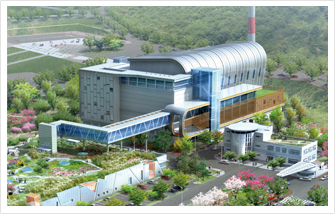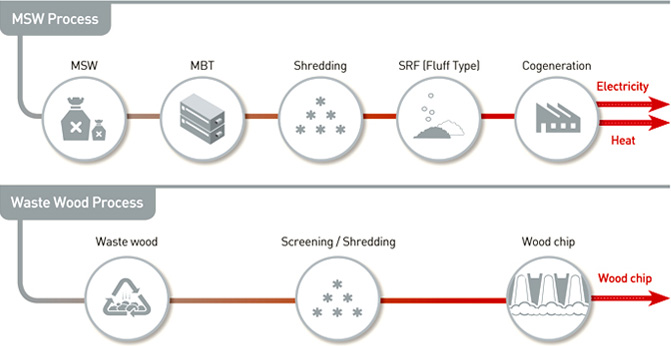RDF : Refuse Derived Fuel
Municipal solid waste (MSW) management is a serious challenge if the waste is simply collected and dumped or even if it is buried in a landfill. In order to meet these challenges, refuse-derived fuel is one of the best options. RDF is obtained from municipal wastes and used as an alternative fuel. In so doing, a city can both reduce its solid waste and utilize the fuel in place of less environmentally friendly options such as coal and oil. In addition, in Korea the introduction of RDF facilities is expected to save the equivalent of 25.1 billion KRW in oil imports.






